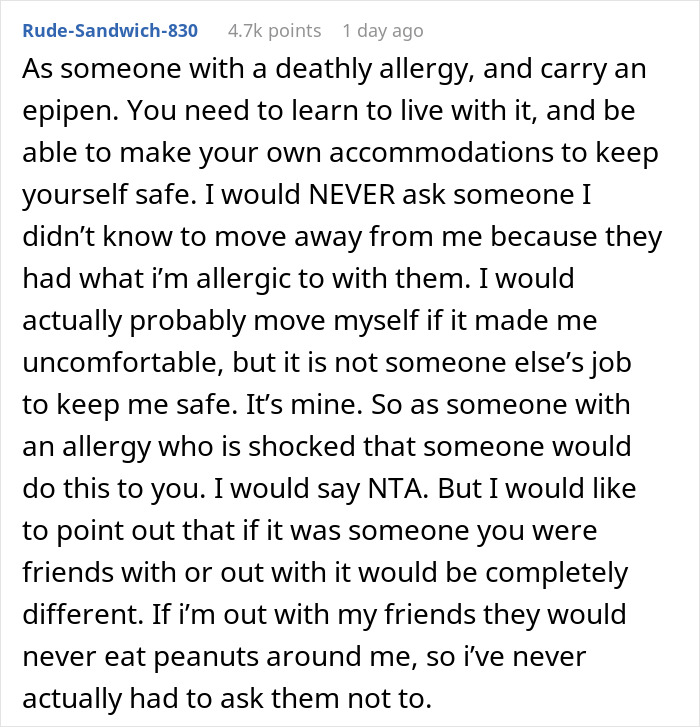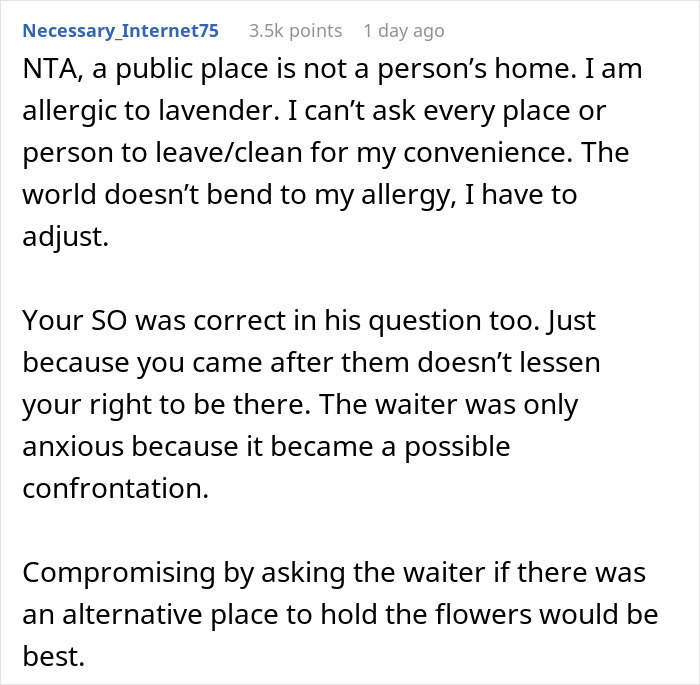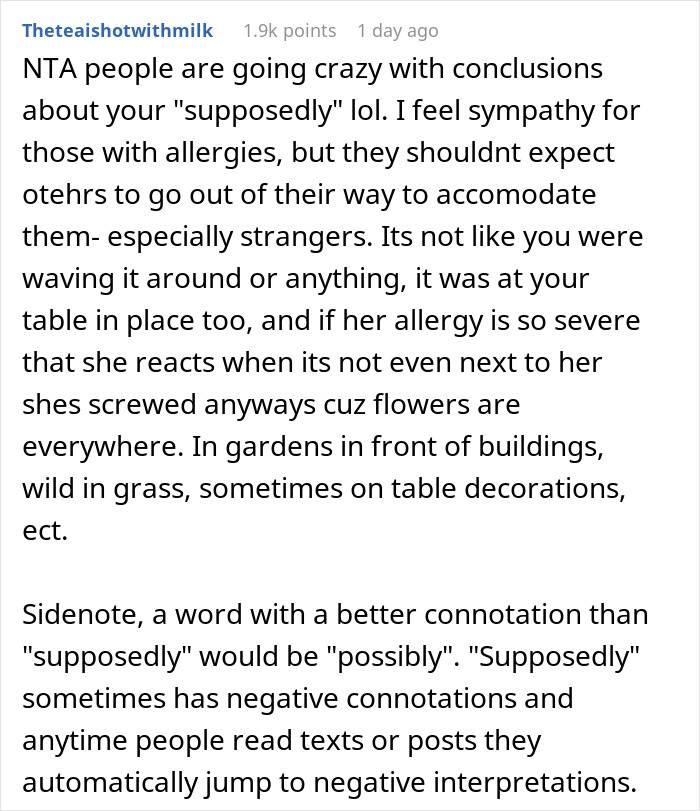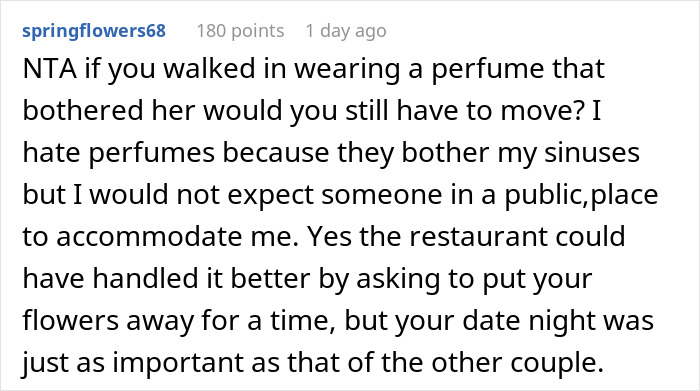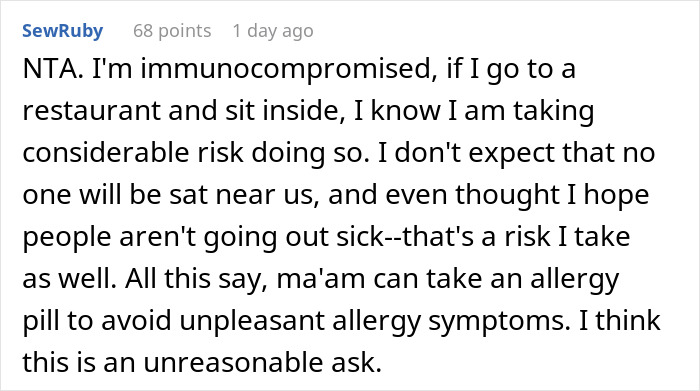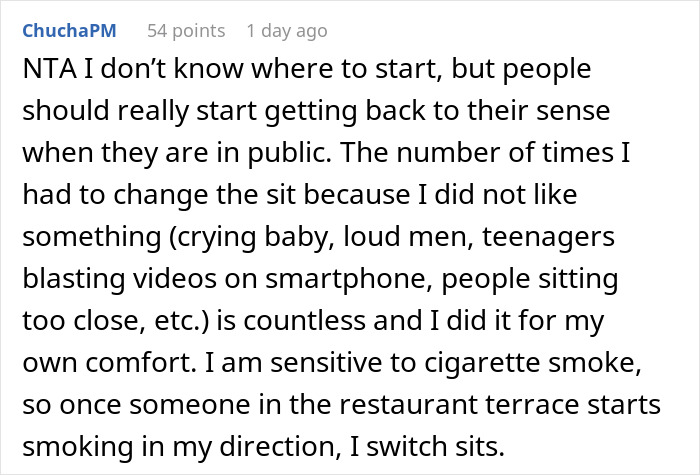For some, receiving flowers is a kind, romantic gesture that brings so much joy. A bouquet can be a lovely surprise, a reminder that someone’s been thinking about you and the perfect way to boost someone’s mood while they’re going through a hard time. But unfortunately for some, flowers can also be tickets straight to sneeze-ville. If you suffer from allergies, flowers might leave you feeling itchy, sniffly and anything but romantic.
One woman recently shared a story on Reddit detailing how she was promptly asked to change tables after bringing a bouquet of flowers along with her to dinner. Below, you’ll find the full tale, as well as some of the reactions readers shared.
This woman and her fiancé were excited to have a date night

Image credits: djoronimo/Envato elements (not the actual photo)
But when another patron in the restaurant requested that they change tables, the evening started going downhill
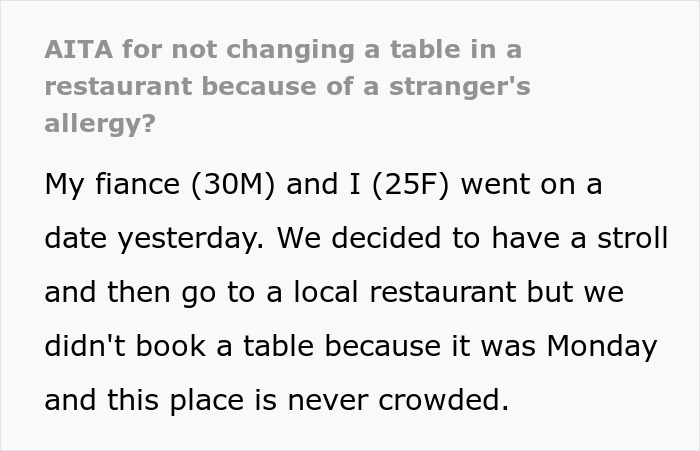


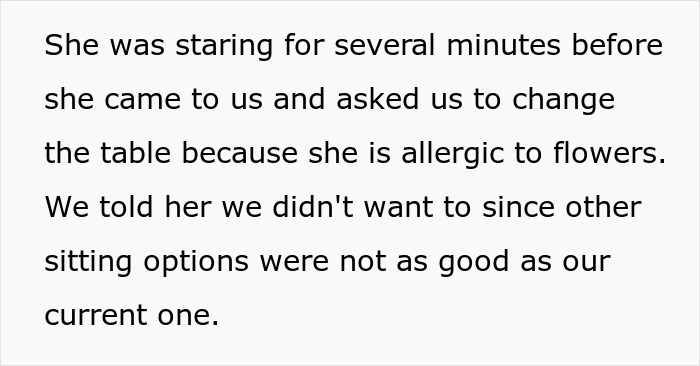
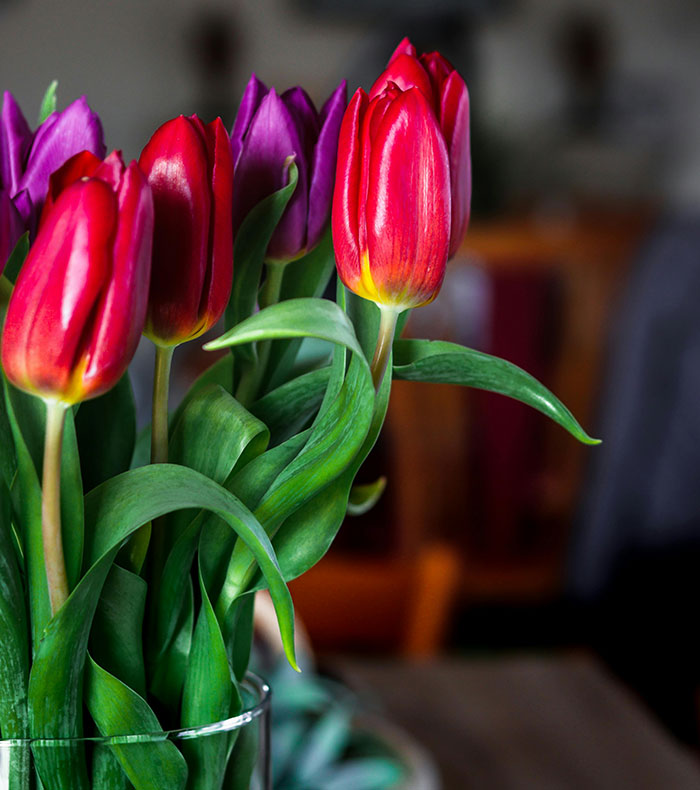
Image credits: Kostas Dimopoulos/Pexels (not the actual photo)
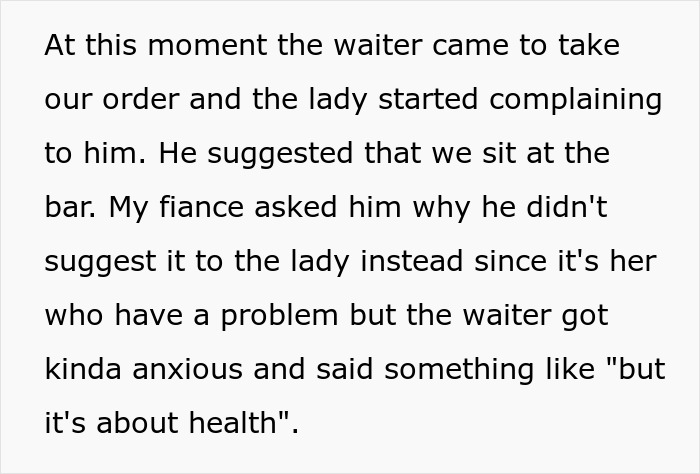

Later, the woman added more details about the story in response to readers’ comments

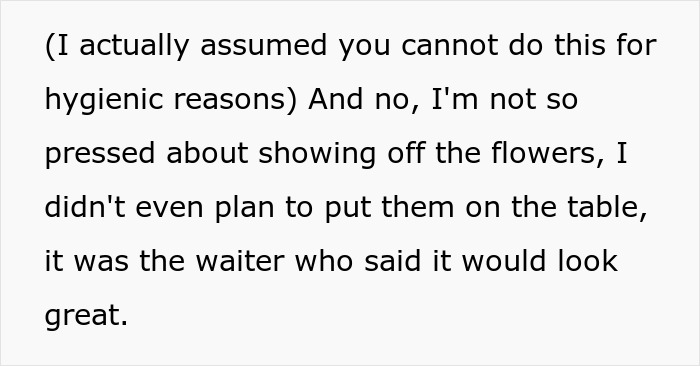

Image credits: neuro_lavender
Millions of people around the world love receiving flowers
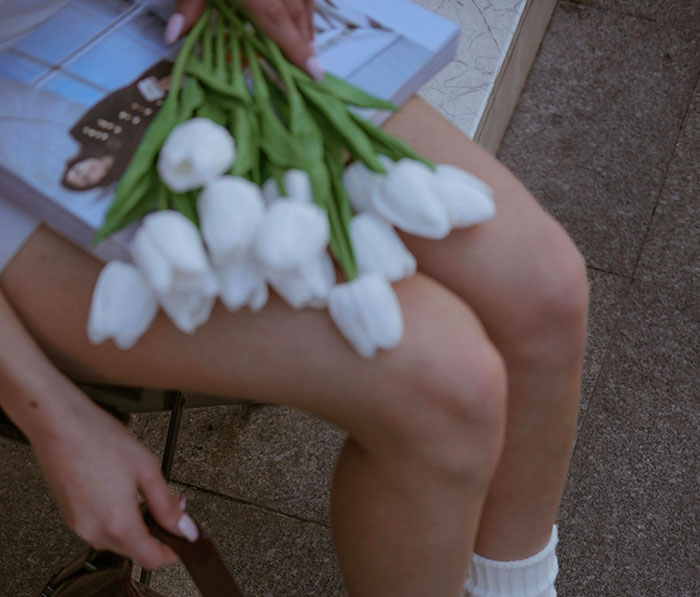
Image credits: Kübra Kuzu/Pexels (not the actual photo)
Giving flowers can be an excellent way to show affection. They’re a staple on Mother’s Day, Valentine’s Day, birthdays, anniversaries and more, and there’s no question that they bring countless people joy around the world. Flowers have been known to boost our moods and enhance our creativity, and some varieties even have stress reducing effects. Who doesn’t love looking over at your kitchen table or windowsill and seeing a vibrant bouquet of fresh flowers glowing in the sun?
According to SmartAsset, florals make up a $34.3 billion industry. There are currently over 15,300 retail flower shops in the United States, and over 75% of those flowers come from Colombia. You might be surprised to find out that Christmas and Hanukkah are actually the biggest holidays for floral sales, as people spend about $2.28 billion on their holiday flowers each year.
But Mother’s Day and Valentine’s Day make up significant portions of the yearly sales as well, with each holiday accounting for about a quarter of annual sales. In fact, 69% of the gifts given on Mother’s Day are flowers, and it’s estimated that over 250 million roses are produced for Valentine’s Day each year. Florists also report that Valentine’s Day is their busiest day out of the year.
Despite being beautiful, flowers can sometimes trigger a variety of allergic reactions
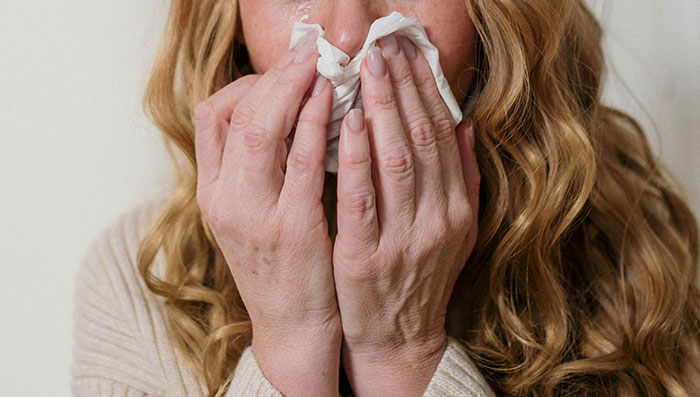
Image credits: cottonbro studio/Pexels (not the actual photo)
While millions of people love receiving flowers, there are sadly plenty of people who don’t have the option to get them, unless they want to turn into sneeze machines. According to the Asthma and Allergy Foundation of America, over 100 million people living in the United States experience allergies each year, and allergies are the 6th most common cause of chronic illness in the US.
Many allergies are seasonal, such as hay fever or rose fever, and many only impact individuals when they’re indoors or outside. For example, some of the most common triggers for indoor/outdoor allergies are tree pollen, grass pollen, weed pollen, mold spores, dust mites, cockroaches, cat and dog dander and rodent urine.
If you’re one of the unlucky few who are allergic to flowers, you might experience coughing, sneezing, itching, breaking out in a rash, stinging, runny eyes and wheezing when in the presence of them. And while pollen from grass and small weeds are more likely to be triggering allergies than the flowers themselves, it can still be wise to avoid direct contact with flowers, or specific types of flowers, to avoid or prevent allergic reactions.
It’s best to stick to allergy-friendly flowers if you’re concerned about causing a reaction
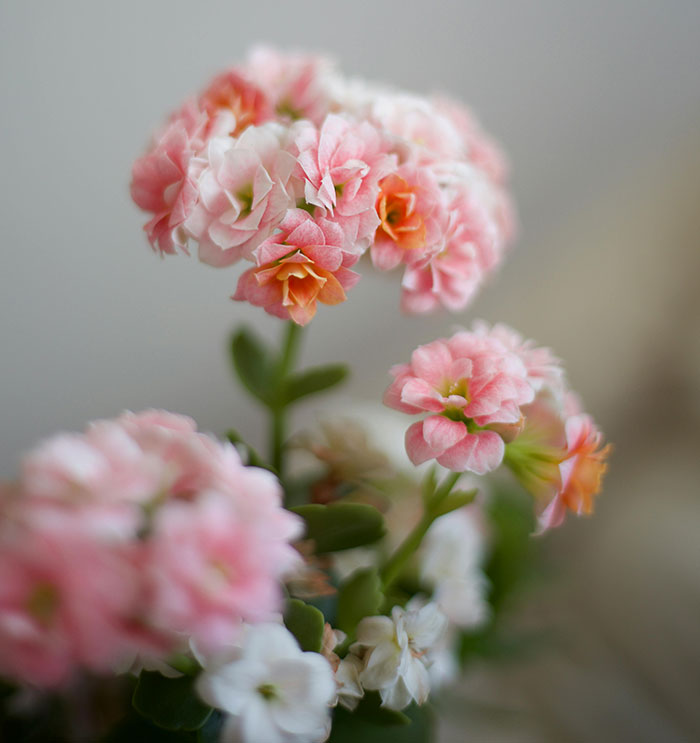
Image credits: papatyayameftun/Pexels (not the actual photo)
It’s recommended to choose flowers that have no scent or very little scent if you’re giving them to someone who may be allergic. Also try to choose flowers with petals that cover the pollen and flowers that do not have oils or spikes on their stems because these can be prone to causing rashes when touched. “Flowers belonging to the chrysanthemum, lily, tulip or gerbera families are particularly harmful in this regard,” Samitivej Hospital notes.
Other flowers that should probably be avoided if you’re concerned about allergic reactions are amaranth (pigweed), chamomile, chrysanthemums, daisies, and ordinary sunflowers, WebMD warns. But there are alternatives if you want to have a thriving flower garden without sneezing every time you walk outside.
More allergy-friendly choices include begonia, cactus, chenille, clematis, columbine, crocus, daffodil, dusty miller, geranium, hosta, impatiens, iris, lily, pansy, periwinkle, petunia, phlox, rose, salvia, snapdragon, thrift, tulip, verbena, zinnia.
We would love to hear your thoughts on this story down below, pandas. Do you think this couple should have simply accommodated the woman’s allergies? Feel free to share, and then check out another Bored Panda piece discussing similar drama right here!
Some readers called out the woman for refusing to be accommodating
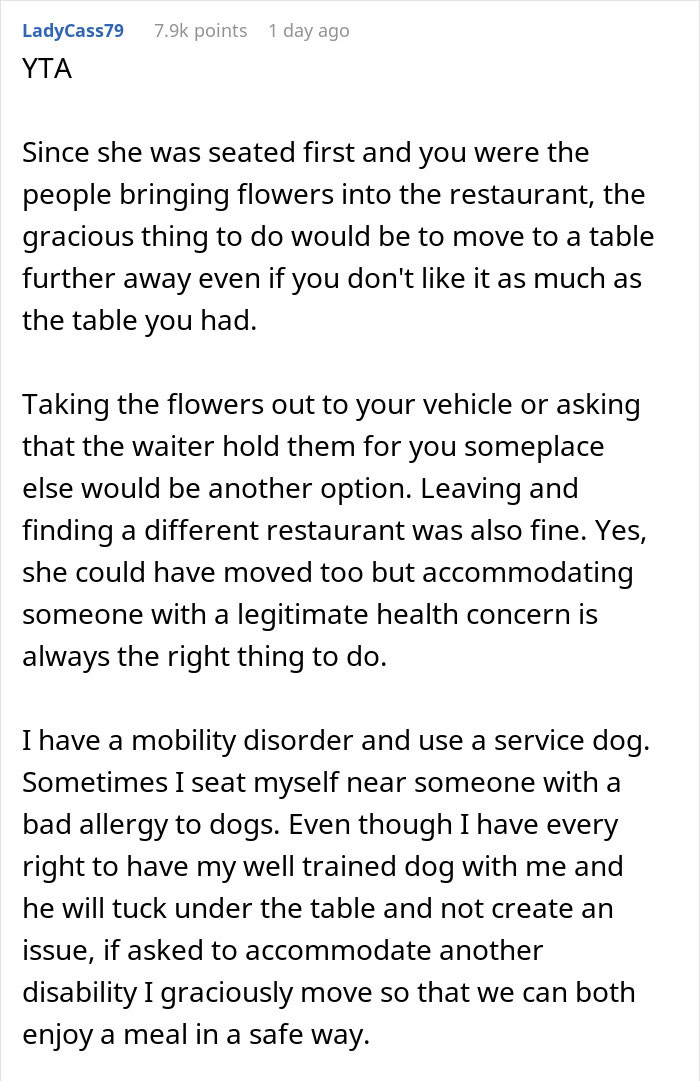


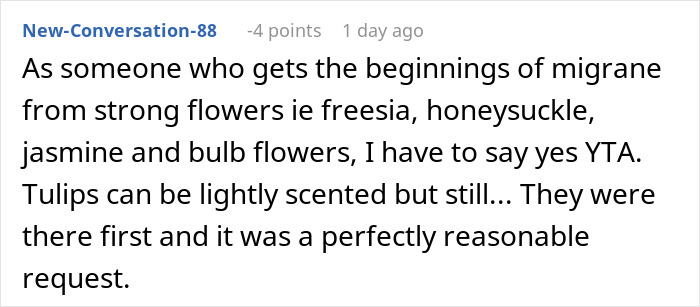


Others, however, were sympathetic and assured her that the allergy wasn’t her responsibility
